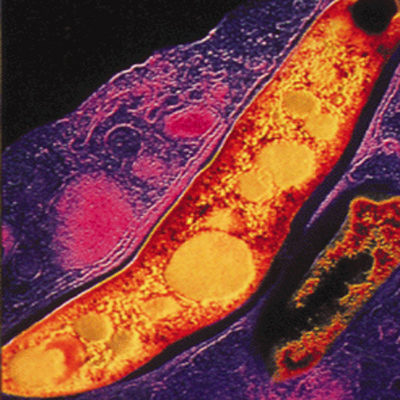New vaccine that completely eliminated TB microbes in mice offers hope
 London, Sept 5 : Researchers at Albert Einstein College of Medicine of Yeshiva University have developed a potential vaccine against tuberculosis that completely eliminated the bacteria from infected tissues in some mice.
London, Sept 5 : Researchers at Albert Einstein College of Medicine of Yeshiva University have developed a potential vaccine against tuberculosis that completely eliminated the bacteria from infected tissues in some mice.
According to lead author William Jacobs, Jr., Ph. D., the only currently used BCG vaccine is not that effective in protecting against TB.
The researchers have determined that the key to fighting off Mycobacterium tuberculosis was to get a better understanding of how it outwits the human body's immune responses.
Dr. Jacobs and his colleagues worked with a closely related species called M. smegmatis that at high doses will be lethal to mice but does no harm to humans.
They created a version of M. smegmatis lacking a set of genes, known as ESX-3, which allows the bug to evade host immunity.
When high doses of the altered bacteria were infused into mice, it became clear that bacteria lacking the ESX-3genes could no longer evade their hosts' immune system.
However, the researchers found that removing the same set of ESX-3 genes from M. tuberculosis killed the bug, which meant that it could no longer be manipulated to create a vaccine.
So Jacobs and his colleagues created a hybrid of the two bacteria by inserting the immune-system beating ESX-3 genes from M. tuberculosis into the version of M. smegmatis from which the equivalent genes has been removed.
These M. smegmatis bacteria were then infused into mice, which once again fought off the infection.
Eight weeks later, when the mice were challenged with high doses of M. tuberculosis-which kills mice as well as people-these "vaccinated" mice lived much longer than control mice: an average survival time of 135 days vs. 54 days.
"Those vaccinated animals that survived for more than 200 days had livers that were completely clear of TB bacteria, and nobody has ever seen that before," said Dr. Jacobs.
"We don''t even know yet if it will work in humans, but it''s certainly a significant step in efforts to create a better TB vaccine," he added.
The study appears in the September 4 online edition of Nature Medicine. (ANI)